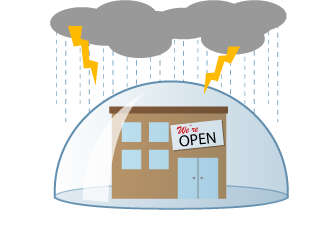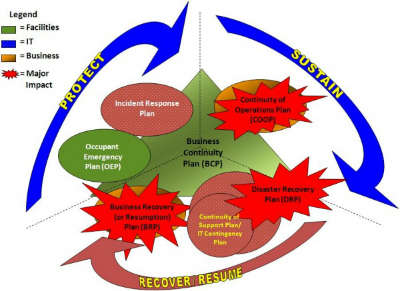No one expects a hurricane to hit business. Superstorm Sandy–formerly Hurricane Sandy–has provided the same bit of unexpected terror for a lot of businesses in New York and the New England area. It’s times like these that having remote operations capability becomes all the more important, and cloud-based telephony is a great way to get there.
While most are familiar with the savings-related aspects of cloud-based telephony–the ability to use the Internet to place calls instead of having to go through toll charges and the like–the idea of its remote operation is somewhat less familiar to most. Two common tools in cloud-based telephony are the local number and the toll-free number. In the case of a local number, users can select from a variety of prefixes depending on where they intend to offer their products or services, and offer those numbers up to the region they plan to make contact with customers. The customers then call the number as they would any other, but instead of going directly to a location in that area, the call instead goes to the cloud, where it’s then forwarded to the specific location a business wants to operate from. So while a business may be located in, say, Iowa, the callers are instead calling a number with a Florida prefix.

Local numbers serve the primary purpose of providing an easy, low-cost way for customers to interact with a business, and do so on a local level, but they serve the secondary purpose of allowing a business to be located anywhere while providing that local connection. For those businesses who might have been affected by Hurricane / Superstorm Sandy, they can fall back to an area that hasn’t been affected while still maintaining that local presence.
Additionally, toll-free numbers serve much the same purpose as local numbers in cloud-based telephony, but without the local connection. Since a toll-free number isn’t so much a phone number as it is a reference marker to a separate phone number, it allows a business to be located anywhere, but redirects calls to a particular phone number. For instance, a company with a phone number like 1-800-BALLOONS is not necessarily located in Boulder, Montana or Eugene, Oregon–just two places with a 225 prefix–so much as it’s simply using the word “balloons” to refer back to another number elsewhere.

The issue of business continuity–of being able to pull stakes and move anywhere in the midst of disaster and yet still be able to operate–is one of vital importance to many businesses. Individual retailers, service industries, and more are all types of businesses that can benefit from having a disaster response plan in place, and in the case of many businesses, a large portion of that disaster planning is having a way to work remotely on hand. Cloud-based telephony is a great way to ensure that business can carry on in the face of even the greatest of calamities.
While our thoughts and prayers go out to all those affected by the recent hurricane, the ability to protect businesses, and ensure their continued operation, can only be helped with the proper use of cloud-based telephony.